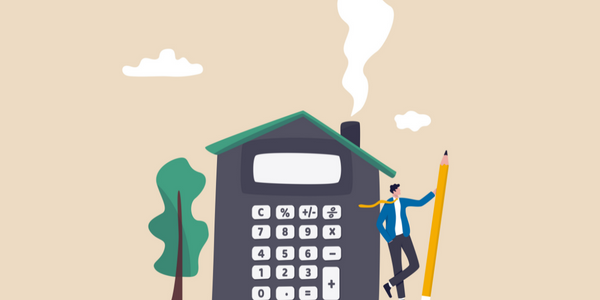
Life may not be completely back to normal, but many cities are reopening businesses and services as we emerge from quarantine orders caused by COVID-19. Returning to work and to the office will also give Americans a better sense of what their finances may look like in the near term.
With the country returning to some semblance of normalcy, it naturally follows that the home buying and selling landscapes will also return to a familiar state of activity. This has some people wondering what home buying and borrowing may look like in a post-quarantine world.
That’s where we come in…
The Buying Atmosphere Right Now
COVID-19 may have temporarily sidelined your homeownership dreams, but there is lots to be excited about right now. Interest rates are at historic lows, and real estate markets across the U.S. have been pretty unfazed by the virus.
If you've been part of multiple bidding wars in the past, the good news is your competition has likely decreased. This creates more opportunities for buyers who are ready to go!
Real estate can be a great long-term investment with a low cost of entry, tax benefits and the potential for long-term wealth through equity, which could make this the ideal time to buy.
Factoring In Your Finances
While market conditions may be favorable to some, others worry about the impact the virus may have had on their income. This is a completely understandable concern, especially as many Americans faced reduced hours, layoffs, furloughs, or have had to step away from work due to health concerns or caretaking.
If you were furloughed from your job and are now back to work (or headed back to work soon), you will need to provide proof of current employment, along with your most recent paycheck. If you were previously qualified at certain hours and wages, your recent pay stub should reflect the same.
If you lost your job and have found work in a similar field, you will need to provide an offer letter from your employer stating your new salary and terms of employment, along with your first paycheck stub prior to final approval.
Those who are self-employed should provide an average of their monthly income over a period of time (generally two years) to calculate their gross monthly income. Depending on how your business was impacted by COVID-19, it may be advantageous to accumulate a couple more months of income in order to increase this average. In other scenarios, a small lull in income may not impact your ability to qualify. A current P&L (profit & loss) statement may also be required.
Examining Other Options
Buying a home is a huge investment, but we know it’s not the only option out there. The stock market has received a lot of attention during this pandemic, and for good reason. It had some wild swings as the virus spread, taking a significant drop in March before climbing back up in April and May. This has led many people to wonder if they should jump in while prices are lower.
There are benefits to investing in both real estate and the stock market, but stock prices tend to be more volatile than real estate. The real estate market remained relatively unchanged amidst the pandemic, even as stocks plunged.
Selling stocks can also result in a capital gains tax. Real estate equity can be used to acquire future wealth (second home, investment properties, investment opportunities, etc.), undertake home improvements, pay for college or pay off debt as a non-taxable event. There are also potential tax advantages for owning property.
Then there’s the fact that real estate investments generally have a low cost of entry. There are programs that offer relatively low down payments and, in some scenarios, no money down. Investing in real estate also provides a sense of security and a home for you and your family.
Interest Rates & Your Mortgage Payment
A drop in interest rates can cause a serious case of FOMO (fear of missing out) for home buyers! The problem is, it’s impossible to know when interest rates will hit their low, before going higher. If you take the wait-and-see approach, you may miss the bottom. You may also miss out on the home of your dreams if you wait too long! At minimum, get yourself prequalified so you know exactly what options are best for you.
On the other hand, if you lock in the rate now, you may have to live with the fact that you could have shaved another quarter-point or so off your mortgage if you’d just waited. Whether now is the right time to buy or refinance is solely up to you. It’s a personal decision, and one you’ll have to live with for a while, at least until you sell or refinance your home once again. So take some time to think this through as getting the right mortgage at the right time is a process.








